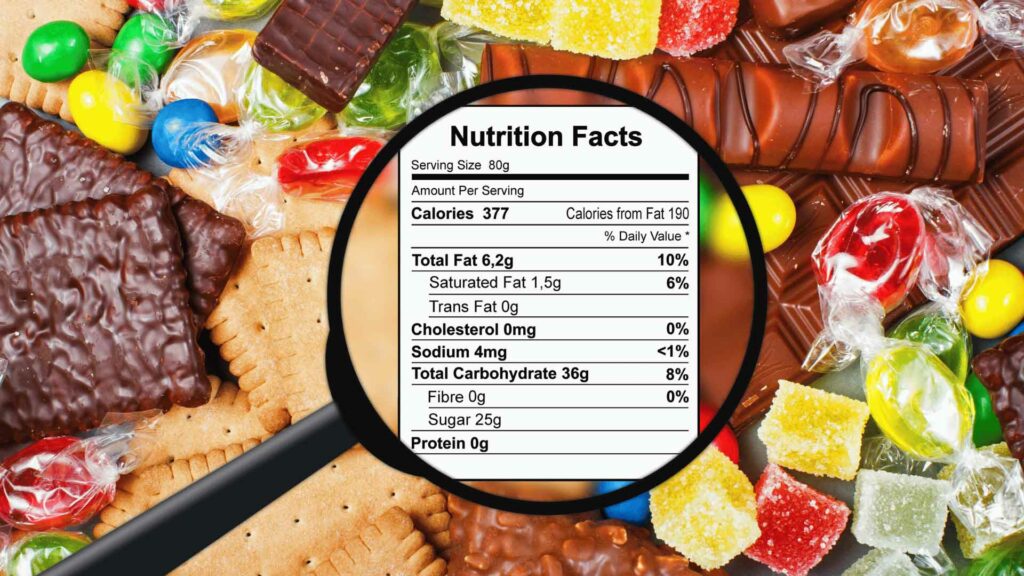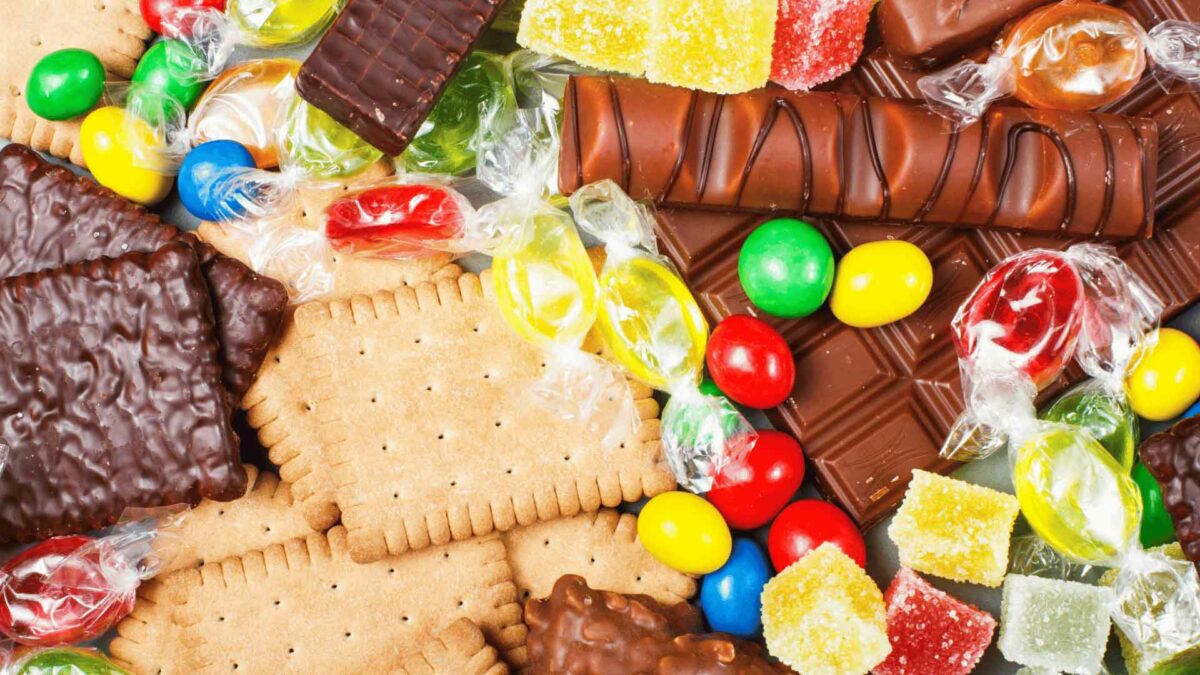By 2025, one in ten people will have type 2 diabetes, and in Latin America, China, and the Middle East, places we don’t usually think of as having a lot of obesity and lifestyle diseases, there will be a lot more. This is a major threat to public health, and it can be stopped. How did we get so far from a century ago, when obesity wasn’t much of a problem? Well, first off, our ways of life are very different.
The effects of sugar on the body have a direct correlation with what we’ve eaten and how we feel. When we eat sugar or highly refined carbs (processed foods), the sugar travels through our blood, and the insulin’s job is to get rid of all that sugar, which makes us feel low in energy (tired).
Let’s think about a table from 100 years ago. People cooked at home. There was no processed food. All of it was real, grown in the soil with the help of the sun’s energy.
Let’s take a look at a meal from today. Usually, it starts with a bowl of cereal from a box that is full of high-fructose corn syrup. Lunch is fast food from a drive-through; an afternoon snack is a candy bar and a Coke; and dinner is something we can microwave for four to five minutes and it’s ready. All of that is food that has been made. It’s not real food, and the worst thing about it is sugar, which is what we’re going to talk about.
How Sugar Affects the Body

In the words of Calgary Avansino, a wellbeing expert, there is a happily married couple called processed food and sugar. Those two things together are what are causing this epidemic and this crisis. It’s not just candy, sweets and sodas. It’s savory things, it’s unexpected things, it’s dressings, it’s bread products, it’s dairy products. It’s everything.
Any time we eat sugar or processed food, that sugar circulates in our blood from our head to our toes, throughout our body. Insulin’s job is to pick up all that sugar out of the blood and feed it to our liver, and our muscles or store it as fat because all that excess sugar can’t hang out in our blood.
This seems pretty innocent. But here’s the problem: overworking our bodies doesn’t happen only with obvious foods, like cake and ice cream. It also happens with highly refined carbohydrate foods, like yogurt and granola, cereal, bread, pasta, and alcohol—even when used in moderation.
When we eat these foods, our bodies send out a signal to start making more insulin. And this is dangerous because, just like anything that gets overused, the parts eventually wear out, leading to burnout. This is another name for prediabetes or type 2 diabetes, which we really don’t want to suffer from, says expert Dr. Jody Stanislaw.
Most of us don’t realize that the food we eat has a direct effect on how we feel.
“I am just always tired. I feel good when I wake up, but then I feel tired, can’t concentrate, and am cranky. I don’t know what’s wrong with me. “
The question is, are we aware that only ten companies own all the food brands in the world? And the truth is that foods that are sweeter sell better. So, when we eat sugar, we might feel a rush of energy and a sense of well-being right away, and we might think, “Wow, sugar makes me feel great!” But if we pay attention, an hour or two later, we will probably feel tired. We might not be able to concentrate, or we might want to take a nap or eat more sugar.
Also, food that has more sugar than is typically found in nature seems to have the potential to be addictive. Our brain releases a lot of this neurotransmitter called dopamine, and dopamine is well known for giving us motivation. Processed foods have reward values that we’ve never experienced before, but research is starting to show that these foods can cause addiction.
It’s so easy to fall into the traps laid by the trillion-dollar processed-food industry today. They call a lot of foods that are high in sugar “healthy,” like gummy vitamins and yogurts (blueberry, strawberry, etc.), even though they have more sugar per ounce than Coke.
We’ve all been told that it’s okay to eat sugar every day, that we don’t even think about it. At the rate we eat sugar now, it’s no longer a treat. It has become a slow death sentence. The good news is that it is possible to turn it around with a few small changes to the way we eat and live, especially if we make them early.
When we start our day with a balanced blood sugar level, our energy is going to be a lot better. Why don’t we just start our day with protein? Let’s just have eggs for breakfast. Changing our lives can be this simple. It doesn’t have to be overwhelming.
We need to eat less sugar. We are not talking about never eating sugar again. Consider the 80/20 principle: 80 percent of the time, we make healthy choices for our food, and then we put our sugar in the other 20 percent. But we’ve got it switched, we’re kind of like 20 percent healthy and 80 percent sugar.
When we want to make a big change in our lives, we must start with only a few small steps. Dr. Stanislaw gives us three steps we can apply right away:
- Have protein for breakfast. Eggs, nuts, cottage cheese, sliced apples with organic peanut butter, or unsalted peanuts instead. Starting our day with a balanced blood-sugar level gives our body that energy stability.
- Next time we feel like we just want a sugary treat, we can grab a glass of water first. Being dehydrated can actually feel like being hungry, so why don’t we try water first? We might feel more energized since a five percent drop in hydration can lead to a 20 percent drop in energy.
- There are so many wonderful low-carb replacements for high-carb foods now. Awesome, right? Pizza crust made out of cauliflower, pasta can be made out of zucchini noodles, and chocolate chip cookies out of almond flour with stevia as a sweetener. Here are some great options for healthy substitutes in your recipes.
How Much Sugar Per Day We Should Eat, According to Experts

The World Health Organization, doctors, researchers, and scientists—people who know what they’re talking about—say that our bodies cannot handle more than seven teaspoons, or 30 grams, of sugar per day.
4 grams of sugar = 1 teaspoon
30 grams of sugar = 7 teaspoons
We need to make changes to how we eat. We need to change the way we shop, not just for ourselves but also for our families and, most of all, for future generations.
Avansino gives us five ways that we can try to make changes to reduce sugar in our daily lives:
- We don’t have to assume that something is healthy just because it says “natural” or “light” on the label, or just because we’ve always eaten it, or it’s always been in our kitchen. We have to turn around everything we buy, look at the ingredients, and if there are tons of words that we don’t understand or it is loaded with sugar, we must put it back on the shelf!
- We must learn the sneaky ways that brands put sugar in foods. There are hundreds of different words that products use for the word “sugar.” Just because it doesn’t say S-U-G-A-R in the ingredient list doesn’t mean it’s not loaded with it.
- Remember the numbers. Four grams equals one teaspoon. That’s our equation so that we can visualize those teaspoons in our head when we’re shopping for ourselves, our children and when we’re feeding them. And remember, seven teaspoons of sugar per day should be our goal. We should try to do less, but seven teaspoons per day must be our goal.
- Think about the happy couple: processed food and sugar. The most important thing that we need to do is start eating real food, food that has grown from the earth. That is what we’re meant to be eating. Start cooking as many days of the week as you can. Plan to cook with our children on the weekends, bring our cooked leftovers to work, and so on. If we make that shift to start eating real food, change will happen.
- Remember that we are in control of what we buy. If we don’t want to eat certain foods, or if we don’t want our family to eat certain foods, don’t buy them. Don’t take them into our house. Because if it’s not in our house, we’re not going to eat it.
A healthy society is important for our future. Sugar is never going to make us feel our best. And sugar is never going to help motivate us to have a great day. Would we like to have more energy? Would we like to have less anxiety? Better memory? Better skin? Better sleep? More joy? Get more done? Cutting back on sugar and highly processed carbohydrates could make a big difference in our lives.
If we all make changes, our future can be better and healthier. Cutting back on sugar could change our lives for the better. And if we eat less sugar, our meals will do what they were meant to do: give us the energy to feel good.
DISCLAIMER
This information is not presented by a medical practitioner and is for educational and informational purposes only. The content is not intended to be a substitute for professional medical advice, diagnosis, or treatment. Always seek the advice of your physician or other qualified healthcare provider with any questions you may have regarding a medical condition. Never disregard professional medical advice or delay seeking it because of something you have read.



